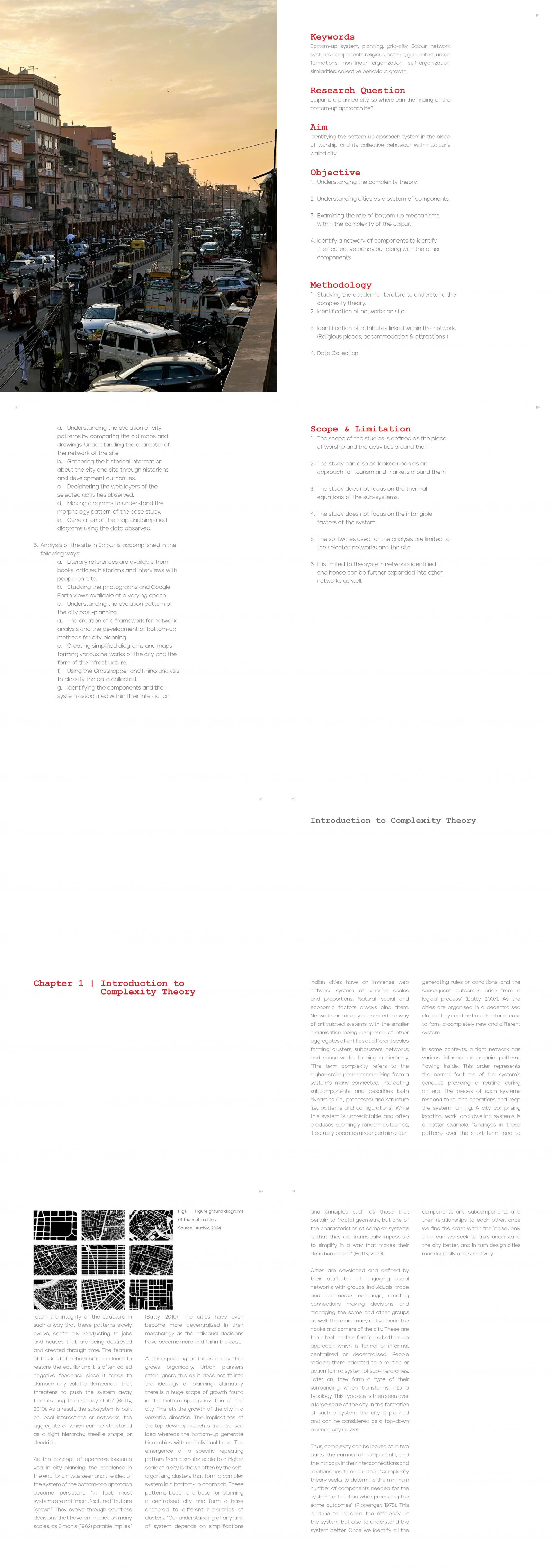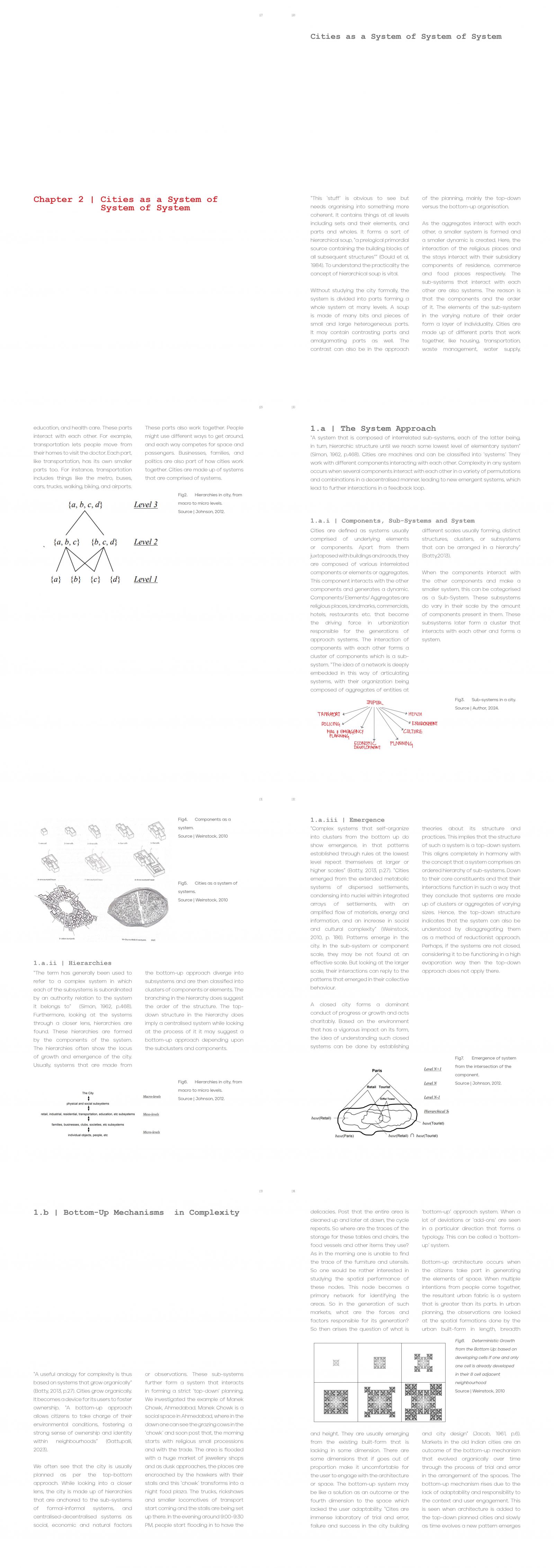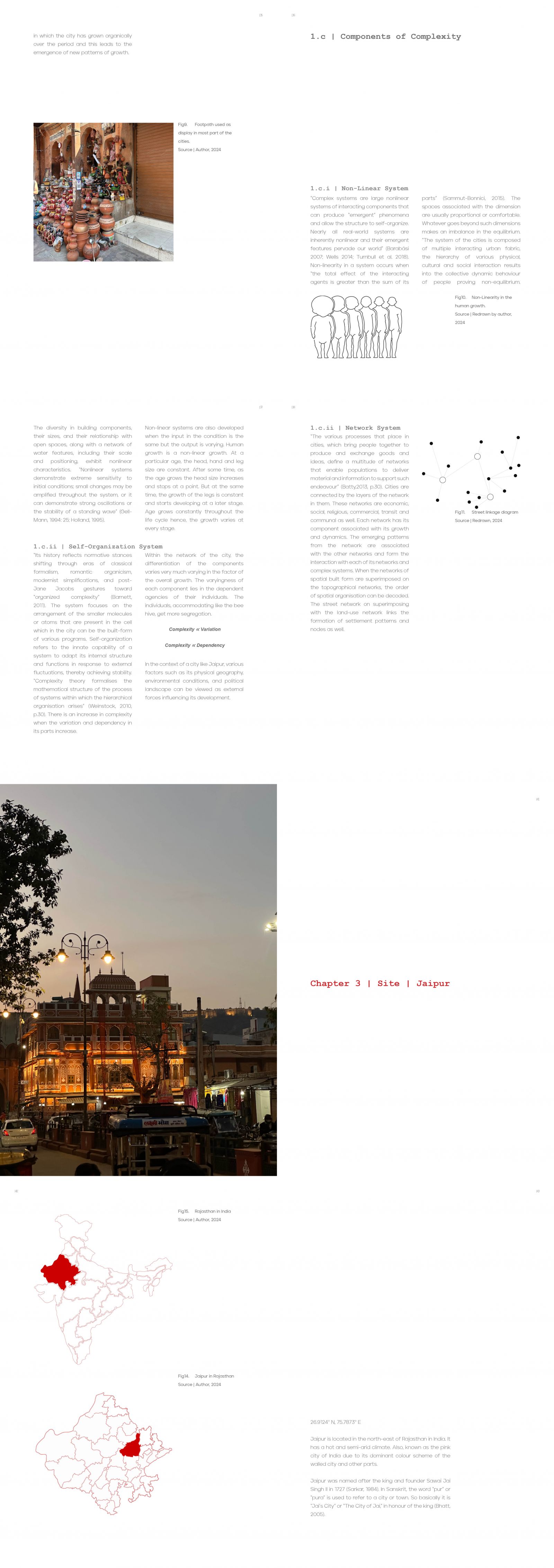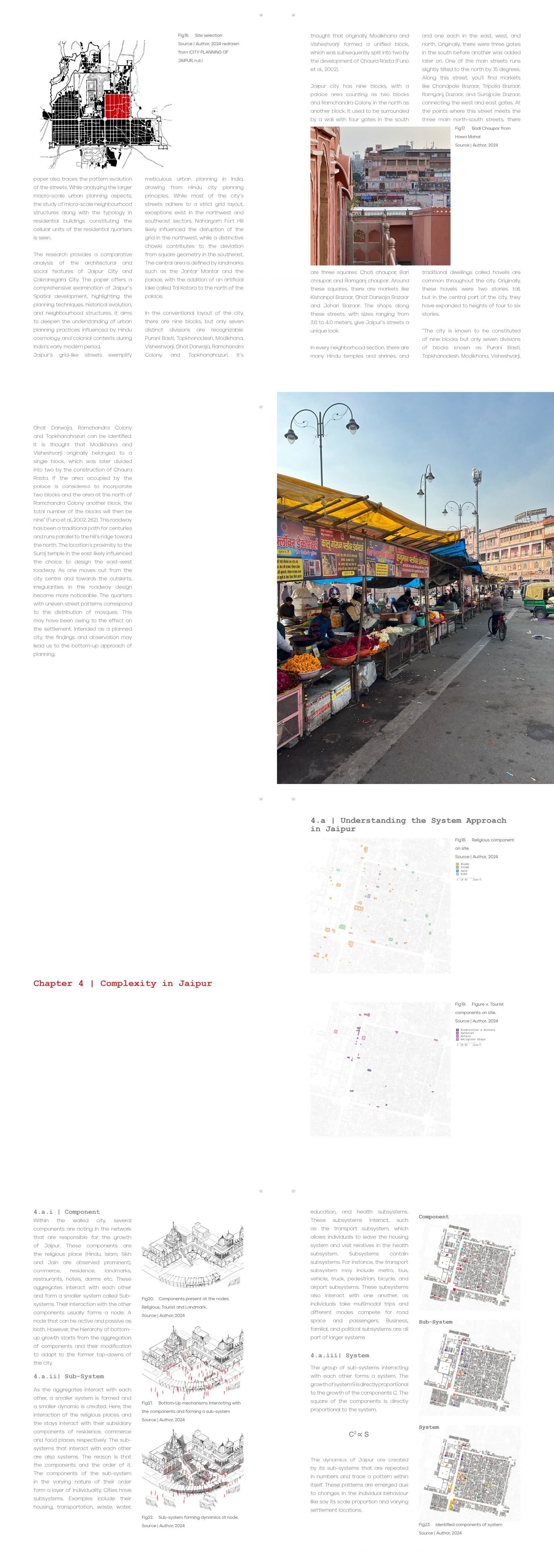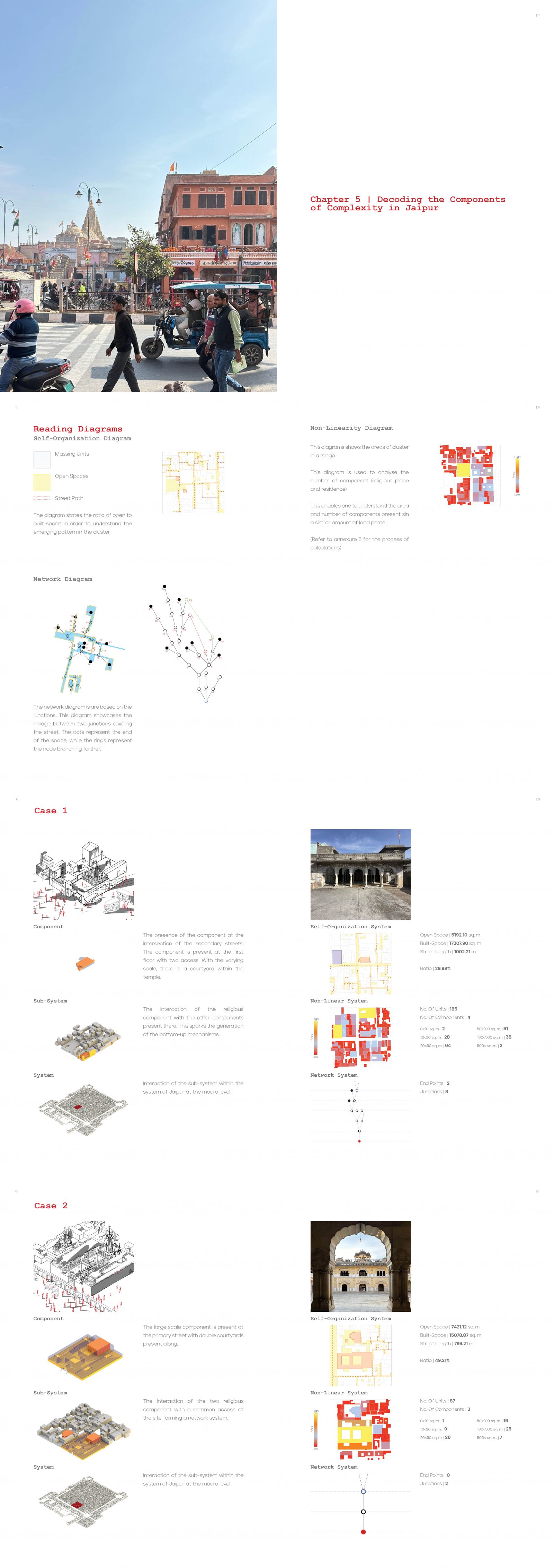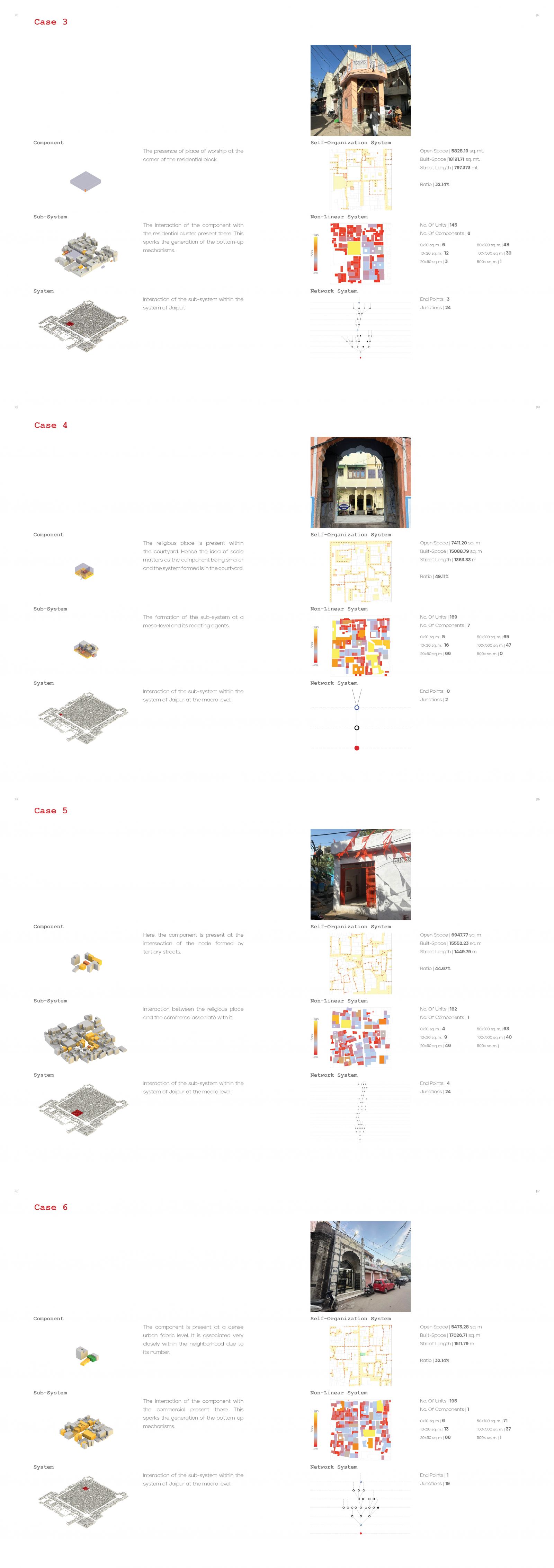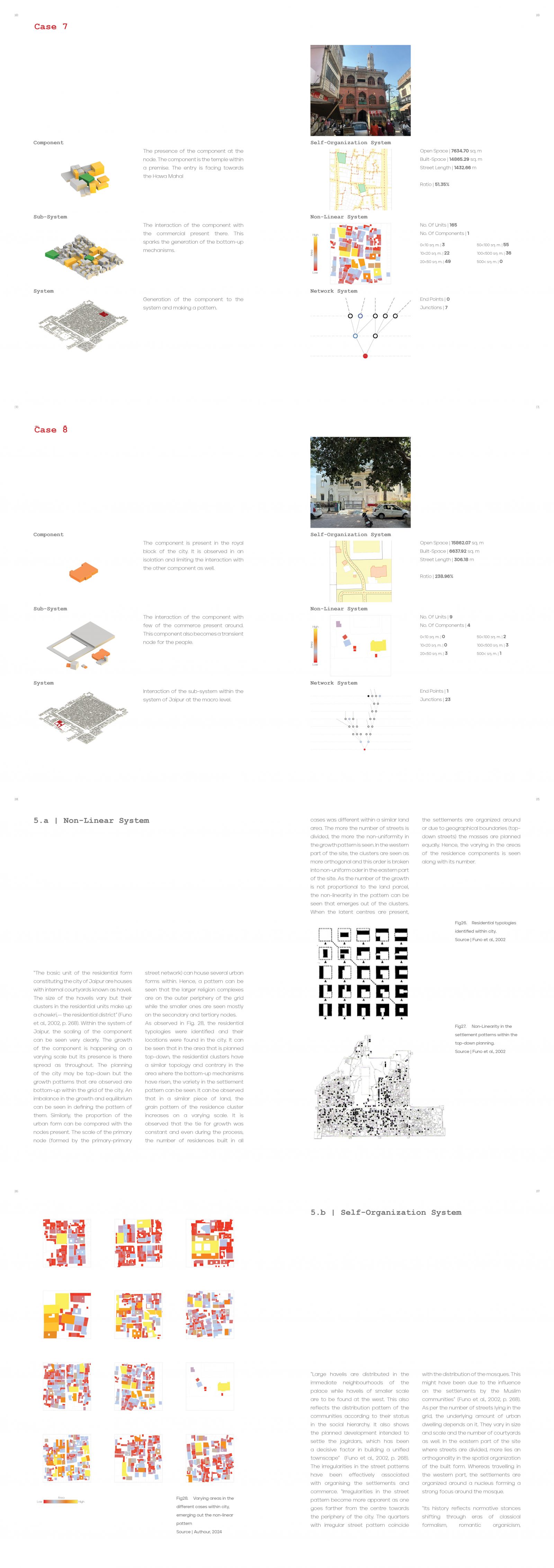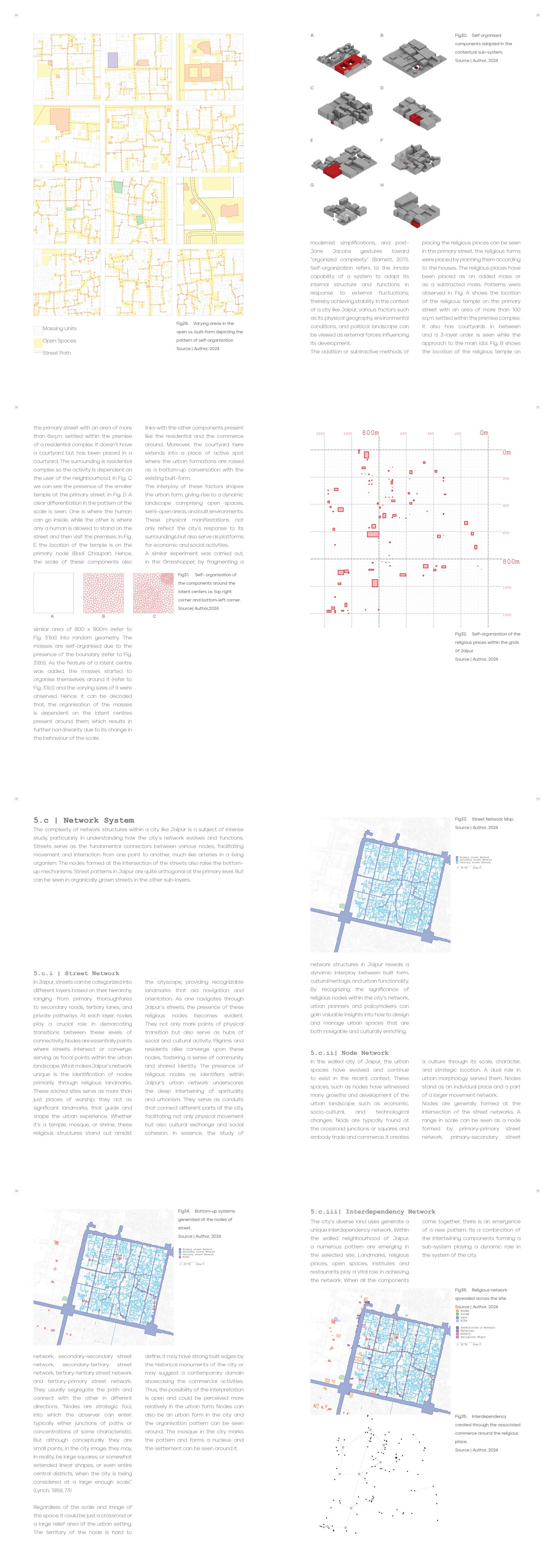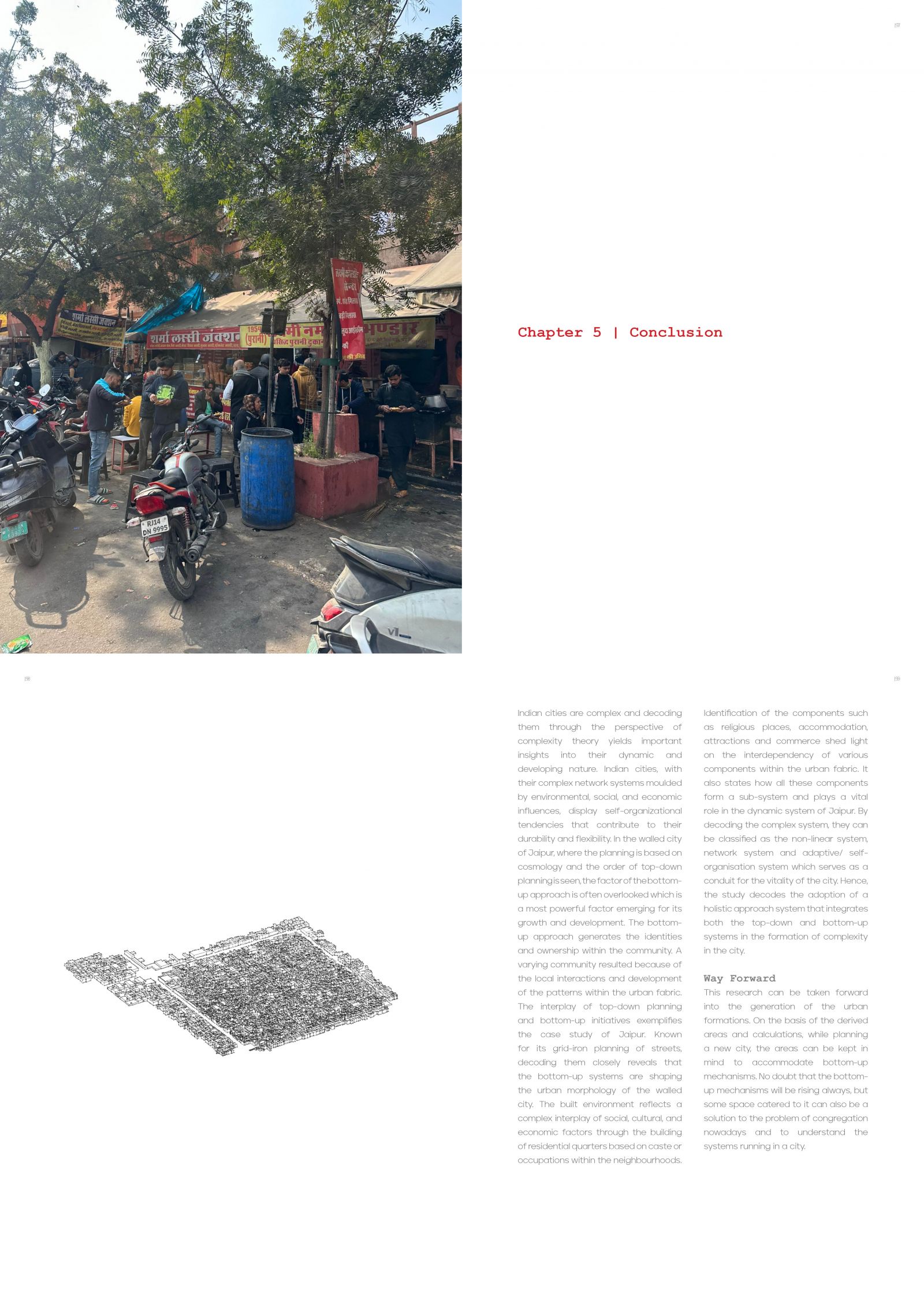Your browser is out-of-date!
For a richer surfing experience on our website, please update your browser. Update my browser now!
For a richer surfing experience on our website, please update your browser. Update my browser now!
This study investigates the bottom-up systems involved in the
development of Jaipur’s walled city after its initial planning phase.
It analyzes various components and dynamics shaping the bottom-up system within Jaipur, aiming to identify collective behaviours,
techniques, and distribution networks. The research explores tangible
and intangible aspects of system formation within the walled city,
examining factors affecting its growth from a bottom-up perspective.
It delves into networks related to religion, lodging, attractions, and
commerce within the case study area.
This analysis delves into the complexity of Jaipur’s urban system,
focusing on its non-linear, self-organizational, and network
characteristics, as well as the interdependency among its
components.
Jaipur’s urban form exhibits non-linear characteristics, with growth
patterns emerging on varying scales. The placement of religious
sites reflects both additive and subtractive methods, influencing
the surrounding urban fabric. Jaipur’s urban landscape reflects
self-organizational tendencies, evident in the distribution of large
and small havelis based on social hierarchy. Irregularities in street
patterns correlate with settlements and commerce, with mosques
influencing street layouts. The city’s evolution through classical
formalism, organicism, and modernist simplifications highlights
its adaptability to external influences. Religious landmarks serve
as prominent nodes, guiding navigation and fostering community
engagement. Nodes vary in scale and form, from crossroads to
extended districts, playing pivotal roles in urban morphology and
organization. Jaipur’s diverse land uses create an interdependency
network, with landmarks, religious sites, open spaces, institutes, and
restaurants forming dynamic sub-systems within the city.
The study provides insights into bottom-up development processes
within Jaipur’s walled city, contributing to a deeper understanding of
urban dynamics and informing future urban planning strategies.
Click here, for the entire Document
